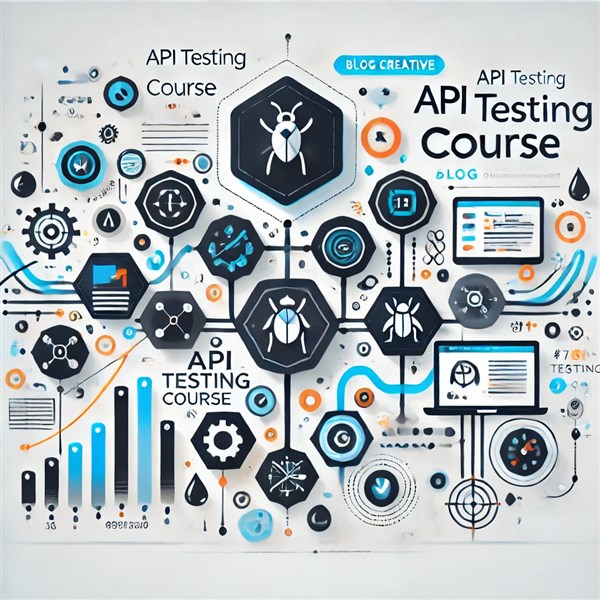
APIs (Application Programming Interfaces) are the backbone of modern software development, enabling different applications to communicate and share data. With the increasing reliance on APIs in software systems, API testing has become a critical skill for QA professionals and developers alike.
If you’re considering an API testing course, you’re taking a step toward mastering a high-demand skill that can elevate your career in software testing or development. But what exactly does such a course entail?
This beginner’s guide will walk you through what to expect from an API testing course, the skills you’ll acquire, and how it can prepare you for real-world challenges in the tech industry.
What to Expect from an API Testing Course
1. Introduction to API Testing
The first thing an API testing course covers is a thorough understanding of APIs and their role in software systems. You’ll learn:
- What APIs Are: How APIs enable communication between software components.
- Types of APIs: RESTful APIs, SOAP APIs, and GraphQL APIs.
- Why API Testing Matters: The importance of verifying the functionality, reliability, and security of APIs.
This foundational knowledge ensures that even beginners without prior experience can grasp the basics.
2. Understanding HTTP Methods and Status Codes
A key part of API testing involves working with HTTP protocols. Courses typically cover:
- HTTP Methods: GET, POST, PUT, DELETE, and more.
- Status Codes: What common codes like 200 (OK), 404 (Not Found), and 500 (Server Error) mean.
- Headers and Payloads: How headers provide metadata and payloads carry data.
These concepts are crucial for interacting with APIs and analyzing their responses.
3. Hands-On Practice with Popular API Testing Tools
Most API testing courses emphasize hands-on experience with industry-standard tools. You’ll typically learn:
Postman
- Setting up API requests.
- Sending GET, POST, PUT, and DELETE requests.
- Using collections to organize and automate tests.
- Writing basic scripts for request validation.
REST Assured
- Automating API tests using Java.
- Writing test cases for RESTful APIs.
- Validating responses and integrating with test frameworks like TestNG or JUnit.
Other Tools
- SoapUI: For testing SOAP APIs.
- JMeter: For performance and load testing APIs.
- Swagger: For API documentation and testing.
Hands-on practice ensures you gain confidence using these tools in real-world scenarios.
4. Learning to Write and Execute Test Cases
An API testing course will teach you how to write and execute test cases effectively, including:
- Functional Testing: Ensuring APIs perform their intended tasks.
- Validation Testing: Verifying data accuracy and correctness.
- Error Handling: Testing APIs for invalid inputs or server errors.
- Boundary Testing: Checking API behavior at data limits.
Practical exercises often include creating comprehensive test scenarios to simulate real-world conditions.
5. Introduction to Automation in API Testing
Manual testing is valuable, but automation is key for efficiency. Courses often introduce automation by teaching:
- Scripting Basics: Writing scripts to automate API requests and validations.
- Frameworks: Using tools like REST Assured, Postman’s Newman, or Python libraries.
- Integration: Running API tests as part of CI/CD pipelines.
Automation skills are highly valued in QA roles and can significantly boost your career prospects.
6. Performance and Load Testing
Many courses include modules on testing the performance of APIs, which involves:
- Load Testing: Ensuring APIs can handle expected traffic.
- Stress Testing: Pushing APIs beyond normal limits to identify breaking points.
- Tools: Using JMeter or other performance testing platforms.
These skills are essential for ensuring APIs remain reliable under varying workloads.
7. Security Testing for APIs
API security is a growing concern, and courses often cover:
- Authentication and Authorization: Testing OAuth, JWT, and API keys.
- Data Encryption: Ensuring sensitive data is protected.
- Vulnerability Scanning: Identifying common threats like SQL injection or unauthorized access.
Security testing ensures APIs are not only functional but also resilient against attacks.
8. Debugging and Troubleshooting
Debugging is an integral part of API testing. You’ll learn:
- How to interpret error messages and logs.
- Techniques to identify and resolve common API issues.
- Using tools like Postman’s console or browser developer tools for troubleshooting.
These skills make you an effective problem solver, a quality highly valued by employers.
9. Introduction to API Mocking and Virtualization
When APIs are under development or unavailable, mocking can simulate their behavior. Courses teach you:
- How to create mock APIs using Postman or other tools.
- Using mock data for testing workflows.
- Understanding the role of API virtualization in continuous testing.
Mocking skills enable you to test applications even when actual APIs are not ready.
10. Portfolio Building and Certification
Many API testing courses culminate with a project or certification. This helps you:
- Build a Portfolio: Showcase your testing expertise with sample projects.
- Earn Recognition: Gain industry-recognized certifications to boost your resume.
- Prepare for Interviews: Practice common API testing interview questions.
These final steps ensure you’re job-ready and can confidently demonstrate your skills to potential employers.
Conclusion
An API testing course offers a comprehensive journey into the world of software testing, equipping you with essential skills to thrive in today’s tech landscape. From understanding API basics and mastering tools like Postman to learning advanced concepts like automation and security testing, these courses are designed to prepare you for a successful career.
Whether you’re a QA professional looking to upskill or a beginner exploring the field, an API testing course provides the knowledge and hands-on practice to make you a valuable asset in any development team.
Koenig Solutions is a leading IT training company that provides a comprehensive API Testing Course. The course is designed to provide in-depth knowledge of API testing with practical examples. With our experienced instructors and industry-relevant curriculum, we ensure a robust learning experience.
Are you ready to start your journey into API testing? Dive into a course today and unlock a world of opportunities in software quality assurance!







COMMENT